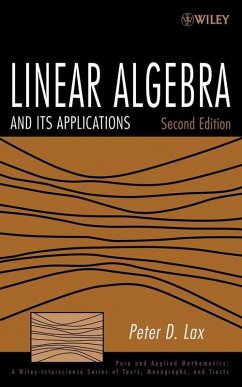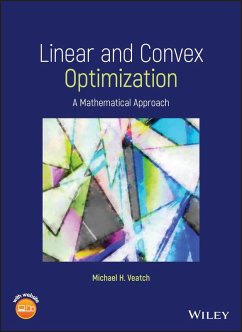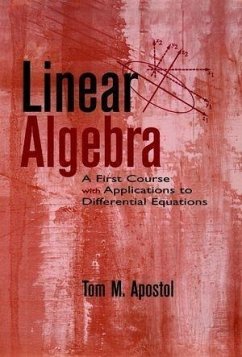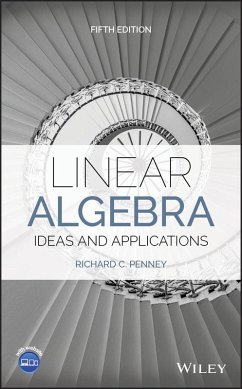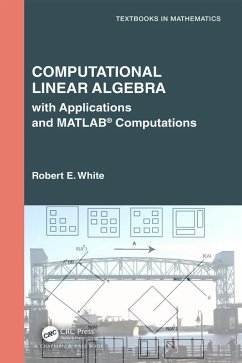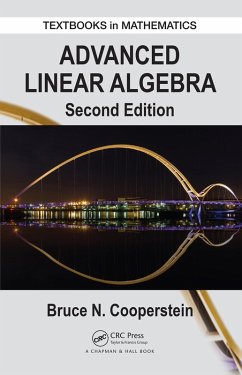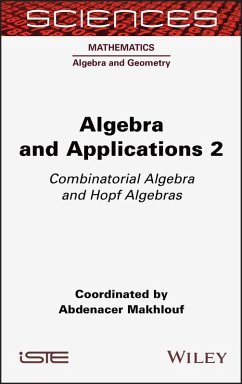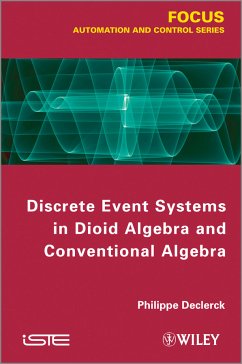
Principles of Linear Algebra with Mathematica (eBook, ePUB)
Versandkostenfrei!
Sofort per Download lieferbar
119,99 €
inkl. MwSt.

PAYBACK Punkte
0 °P sammeln!
A hands-on introduction to the theoretical and computational aspects of linear algebra using Mathematica® Many topics in linear algebra are simple, yet computationally intensive, and computer algebra systems such as Mathematica® are essential not only for learning to apply the concepts to computationally challenging problems, but also for visualizing many of the geometric aspects within this field of study. Principles of Linear Algebra with Mathematica uniquely bridges the gap between beginning linear algebra and computational linear algebra that is often encountered in applied settings, and...
A hands-on introduction to the theoretical and computational aspects of linear algebra using Mathematica® Many topics in linear algebra are simple, yet computationally intensive, and computer algebra systems such as Mathematica® are essential not only for learning to apply the concepts to computationally challenging problems, but also for visualizing many of the geometric aspects within this field of study. Principles of Linear Algebra with Mathematica uniquely bridges the gap between beginning linear algebra and computational linear algebra that is often encountered in applied settings, and the commands required to solve complex and computationally challenging problems using Mathematica are provided. The book begins with an introduction to the commands and programming guidelines for working with Mathematica. Next, the authors explore linear systems of equations and matrices, applications of linear systems and matrices, determinants, inverses, and Cramer's rule. Basic linear algebra topics, such as vectors, dot product, cross product, and vector projection are explored, as well as a unique variety of more advanced topics including rotations in space, 'rolling' a circle along a curve, and the TNB Frame. Subsequent chapters feature coverage of linear transformations from Rn to Rm, the geometry of linear and affine transformations, with an exploration of their effect on arclength, area, and volume, least squares fits, and pseudoinverses. Mathematica is used to enhance concepts and is seamlessly integrated throughout the book through symbolic manipulations, numerical computations, graphics in two and three dimensions, animations, and programming. Each section concludes with standard problems in addition to problems that were specifically designed to be solved with Mathematica, allowing readers to test their comprehension of the presented material. All related Mathematica code is available on a corresponding website, along with solutions to problems and additional topical resources. Extensively class-tested to ensure an accessible presentation, Principles of Linear Algebra with Mathematica is an excellent book for courses on linear algebra at the undergraduate level. The book is also an ideal reference for students and professionals who would like to gain a further understanding of the use of Mathematica to solve linear algebra problems.
Dieser Download kann aus rechtlichen Gründen nur mit Rechnungsadresse in D ausgeliefert werden.



